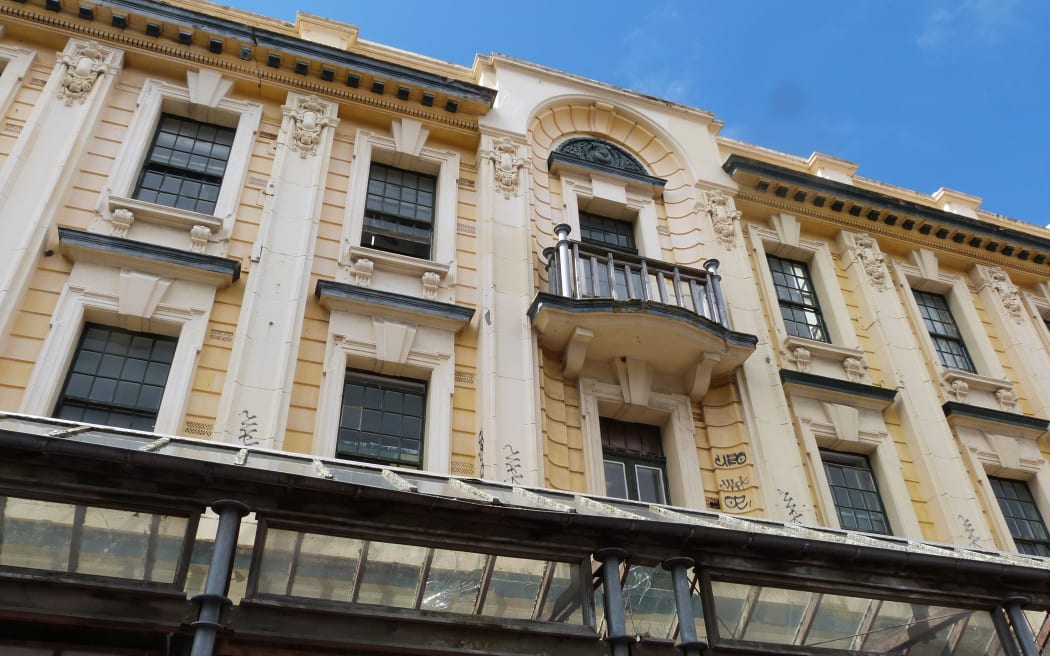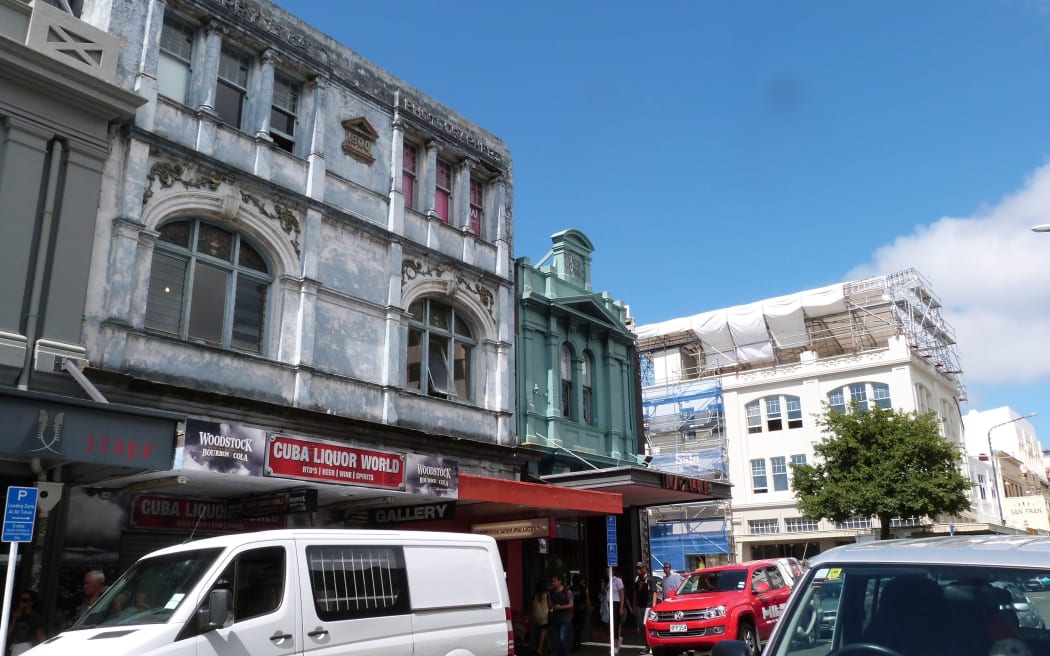Building owners say they may not be able to afford to fix their quake-prone buildings, and are unlikely to meet the 12-month deadline, even if they could afford it.

Quake-prone building facades on Cuba Street in Wellington will need to be repaired within 12 months. Photo: RNZ / Edward O'Driscoll
The government has released a list of 38 streets around the country with unreinforced masonry on buildings which must be fixed in the next 12 months.
The cost is likely to be about $9 million.
Of the 38 streets, 29 of them are in Wellington's CBD, with others in Lower Hutt, Marlborough and Hurunui in North Canterbury.
Councils have made a list of the streets where the chances of unreinforced masonry falling off buildings was high.
Wellington City Council building resilience manager Stephen Cody said the risk of another earthquake had brought the deadline forward.
"The reason why this time frame was chosen, and actually why the reason the order in council was introduced to cabinet, was because of the heightened seismic risk, as a result of the Kaikoura earthquake in November last year.
"Because of the impact of that earthquake in November, it's increased the risk of another strong earthquake or aftershock over the next 12 months, so therefore it was decided that there would be a need to move the clock forward, so to speak, in regard to having some buildings strengthened."
He said it was broken facades and parapets that killed people in the Christchurch earthquake.
The councils have now started to tell affected building owners, who have a year to fix their buildings.
But Wellington Inner City Association chief executive Geraldine Murphy doubted owners would be able to get the work finished in time.
"You could be months late because you've got to get all the owners on board, you've got to work through this process. I've been talking to engineers about getting a detailed seismic assessment, and they're saying 'yeah we can respond, but it'll take two months before we can start the work'."

Wellington's Cuba Street is one of 38 streets that has been named as needing work. Photo: RNZ / Edward O'Driscoll
The government was giving $3 million to help building owners with the cost of repairs, with councils adding an additional $1.5 million, bringing the total to half the overall estimated repair cost.
It meant owners would get a 50 percent subsidy on repairs after they had been completed, but Ms Murphy said some of them would not be able to afford to get started.
"Chances are there's going to be owners there who, they might be business owners, they might have residential people in there as well, but chances are there could be people who just haven't been able to find the money and that's possibly partly why it hasn't been done."
Ian Harrison, the chair of Evidence Based Seismic Strengthening, said the subsidy was not enough.
"If you're looking at 300 buildings just to get an engineer on site and everything that goes with that."
He said the cost would vary for different owners.
"What do they mean by facades? There could be some facades that are extremely expensive to fix.
"I think the subsidy should not be capped. It should be if they want to put up fifty percent then it should be fifty percent of the actual."
Cuba Street in Wellington was identified as being high-risk, and people there agreed that dodgy buildings needed to be fixed.
"Public safety is foremost in the whole situation, so yeah, I think it's a good thing", said one man.
A student who had only lived in Wellington for a week said she chose where she lived based on its earthquake strengthening work.
"It was on my mind when I moved here, but I think it would be a shame to see these beautiful buildings damaged."
If building owners did not meet the 12 month deadline, it would be up to the local councils to work out the next course of action.

